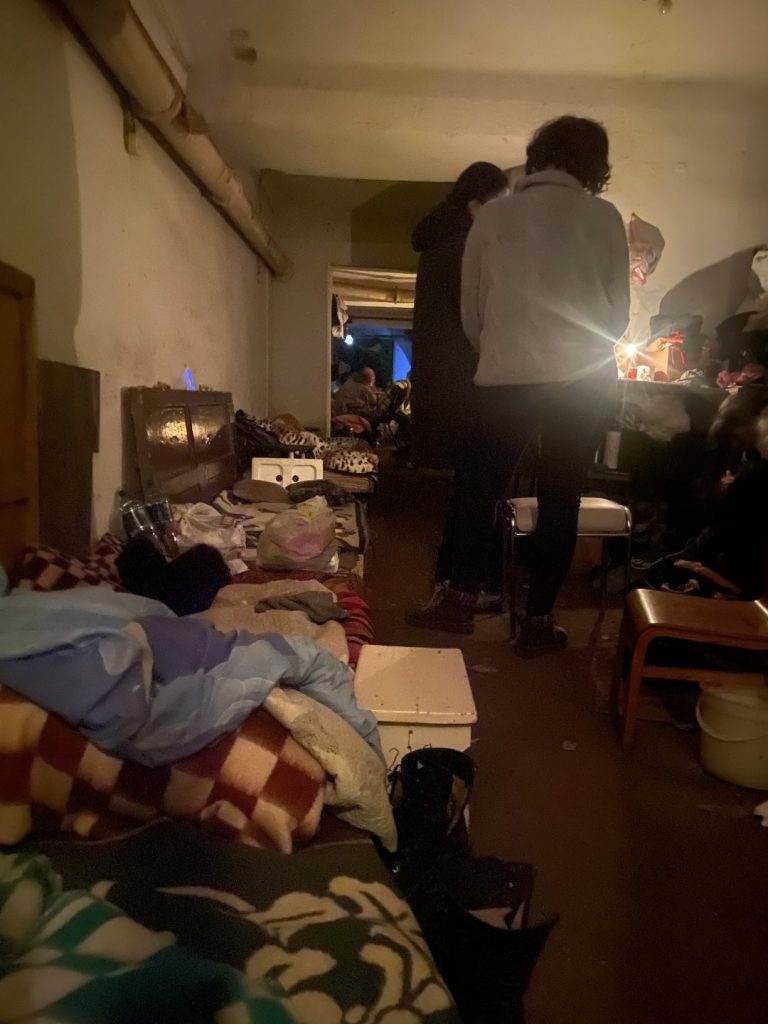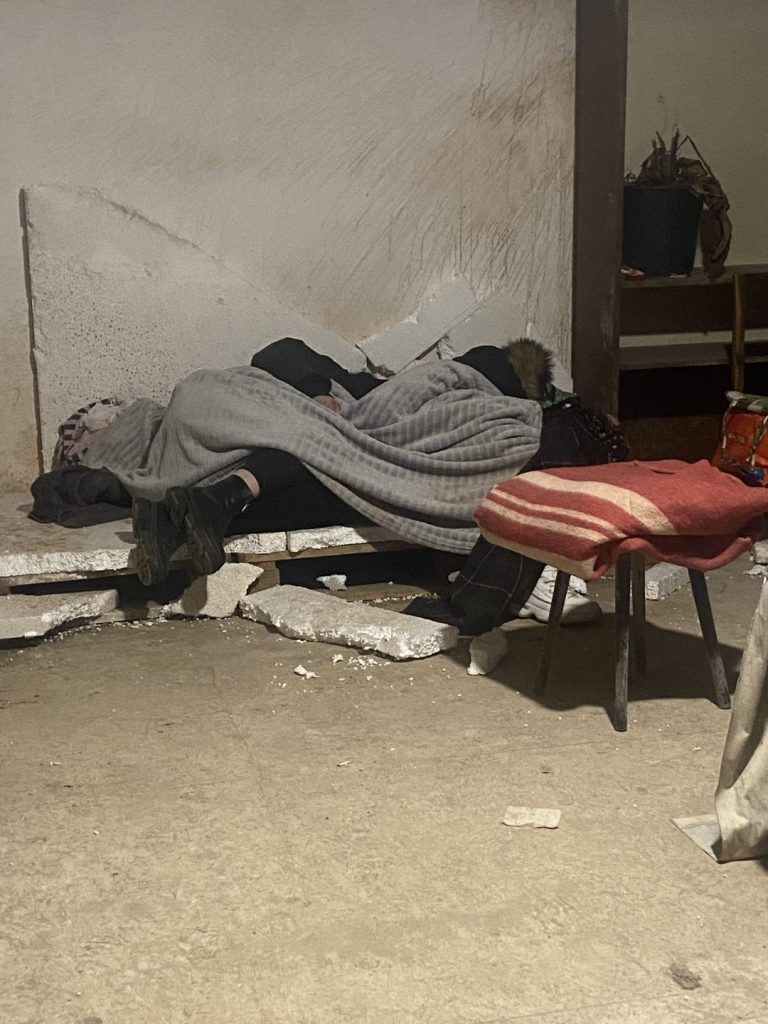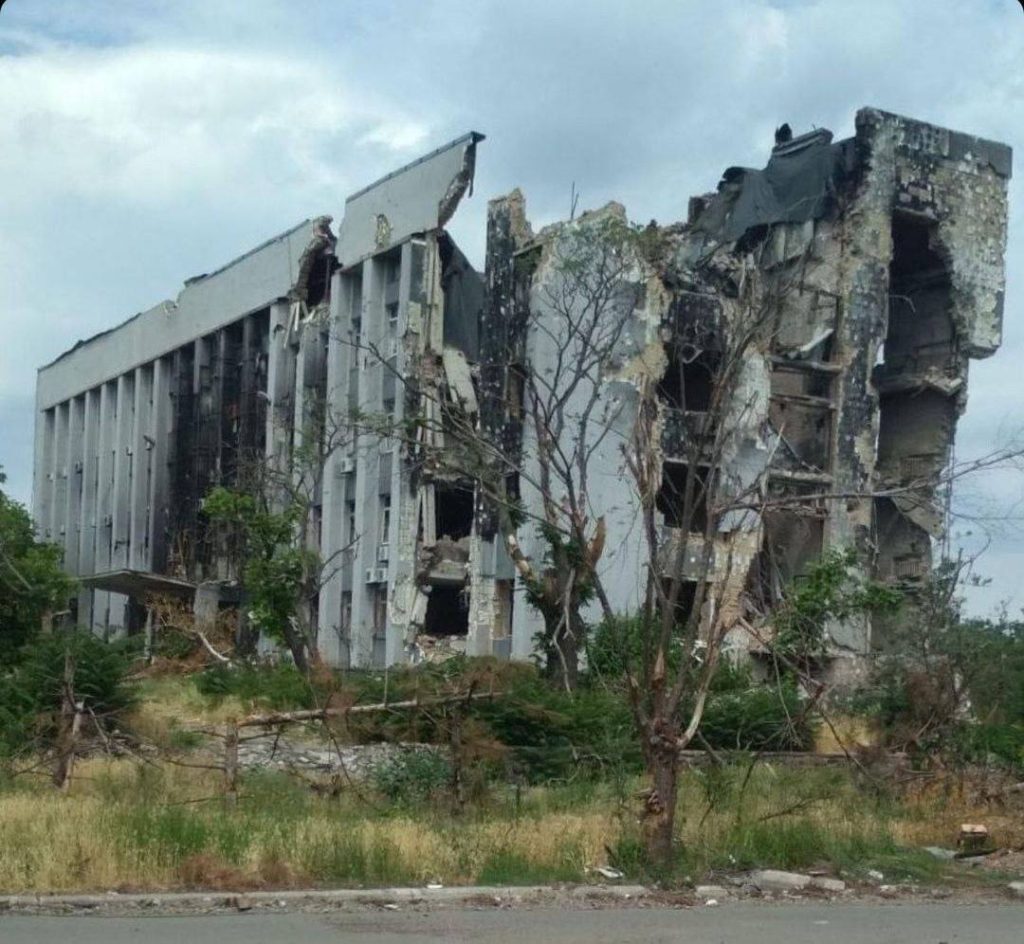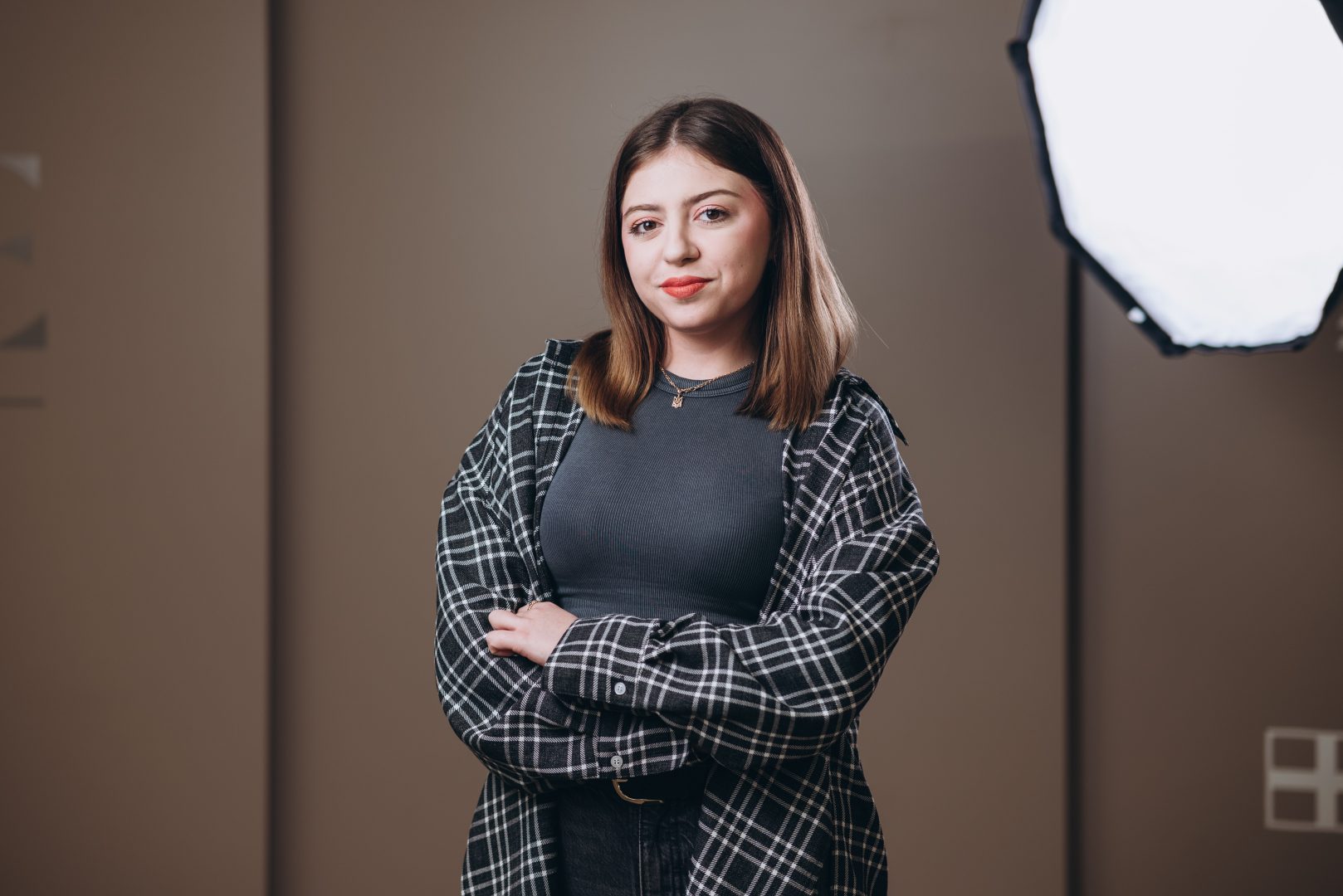
Myroslava Borysiuk is a first-year KSE student from Mariupol who returned to Ukraine after a year and a half of living in Ireland. All this to study at the Kyiv School of Economics. And then, to return to the Donetsk region to help address the consequences of the war in the legal field. For this purpose, the student chose the specialization in Law.
“I wanted to enroll in the Kyiv School of Economics because of the teachers. All the teachers are very strong, motivated people; they really want to teach us. My favorite teacher is Oksana Syroyid,” shares Myroslava.
To start pursuing her dream education, Myroslava was helped by the KSE Foundation philanthropists. Thanks to their support, the scholarship grant program can cover all her academic years.
The choice of “Law” was motivated by Myroslava’s goal to help the military and those affected by Russian military crimes in Donetsk region, as well as to seek justice.
“My 29-year-old uncle was killed, and the perpetrators were never punished. After that, I realized that I wanted to protect myself and my relatives, so now I aspire to be a prosecutor or a lawyer,” says Myroslava.
Myroslava Borysiuk experienced the beginning of the war in her hometown Mariupol, first at the age of nine when Russian forces invaded Ukraine. Then, on February 24, 2022, while she was in the 10th grade. Both times, it all started with explosions, recalls Myroslava.
“I was 9 years old. I remember the first day: my parents took me out of school, and I heard terrible explosions. It was very loud, but my parents decided not to leave. Our house’s windows faced the left-bank city administration, where the Ukrainian flag always flew. One day, in the morning, I open the curtains – and there’s already a Russian flag,” she recounts.
The city was under occupation for a month. At that time, young Myroslava, upon hearing the news of children’s deaths in Mariupol, wrote a letter to herself in the future, expressing her desire to live in Ukraine.
Despite the de-occupation, Mariupol was shelled until 2018. This further motivated Myroslava to study Ukrainian culture. She attended all events and camps of the Ukrainian Leadership Academy in the city, gaining volunteer experience and getting inspired to speak Ukrainian.
“I really liked Ukrainian traditional clothing, so at the age of 9-10, I asked my parents to buy all the embroidered shirts and wreaths in Zakarpattia, where we used to go on vacation. And then I wore them to school in Mariupol every day. At that time, unfortunately, many people didn’t understand it,” the student says.
On February 24, 2022, the full-scale invasion of Russia began.
“On the first day, civilians died in the ‘Eastern’ district of our city. Then they turned off the electricity, water, gas, heating, and mobile communication. I begged my mom to leave Mariupol, but she was afraid to drive through the ‘Azovstal’ plant because the road to the city center passed by the plant. In the first 3 days, you could get out of the city by train through Volnovakha, but one day the Russians shelled it,” the girl tells.
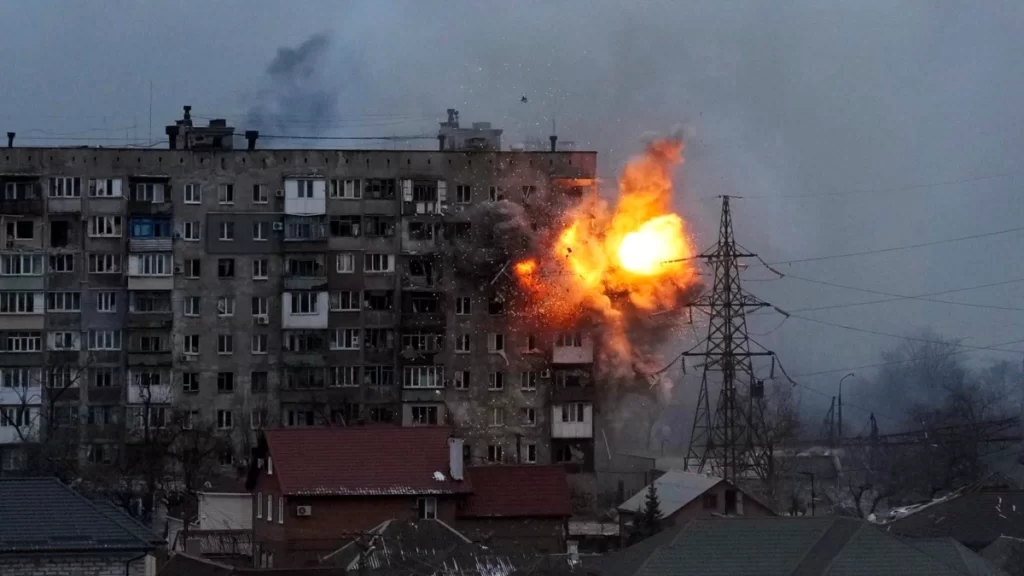
Credit: Evgeniy Maloletka, AP
After the start of the major war, Myroslava lived in the basement of her house 24/7 – explosions occurred every minute, she recalls. Later, they were offered to move to the basement of the Donetsk Academic Regional Drama Theatre in Mariupol, from where evacuation buses were supposed to depart.
“It was the most emotional thing I’ve seen in my life. Inside were not hundreds but thousands of Mariupol residents with children waiting for help,” she says.
Myroslava’s mother decided that it was dangerous to stay in that place, the student says, so they hid in the basement of acquaintances in the neighboring building.
Photo: Myroslava Borysiuk’s personal archive
The family had no food, and to give Myroslava at least warm water to drink, her mother collected snow in a thermos and melted it on a bonfire, the girl remembers. Sometimes even that didn’t work.
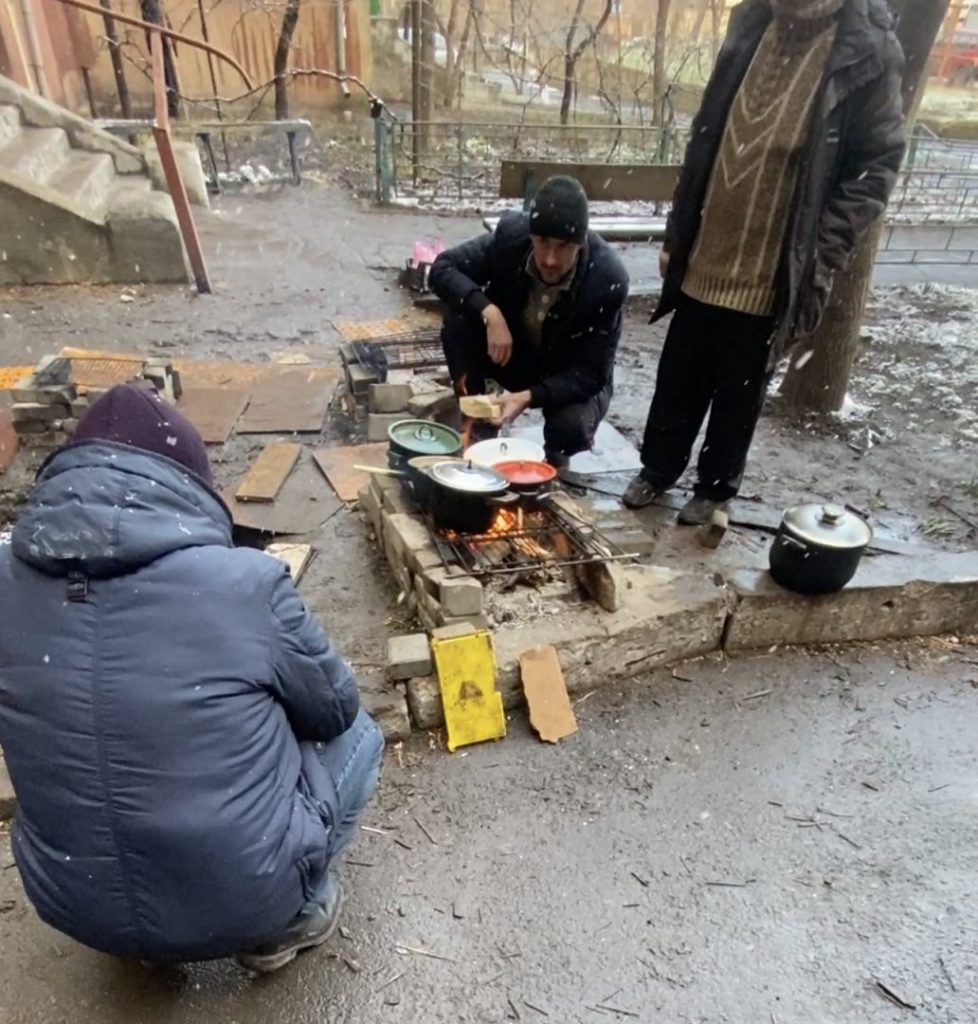
Photo: Myroslava Borysiuk’s personal archive
“March 15 is the happiest day of my life. That’s when we managed to leave the city. We encountered dozens of checkpoints with russian soldiers who forced us to shout ‘Glory to Russia.’ They checked all the documents and belongings. 20-30 meters away from us, a car exploded on a minefield – it completely burned, and people died,” says Myroslava.
So Myroslava and her mother ended up in Zaporizhia, and from there, they went to Ireland, where they lived for a year and a half. During that time, they learned that an air bomb hit their house on March 18, and on March 16, the day after their evacuation, the Russians destroyed the Donetsk Academic Regional Drama Theatre in Mariupol.
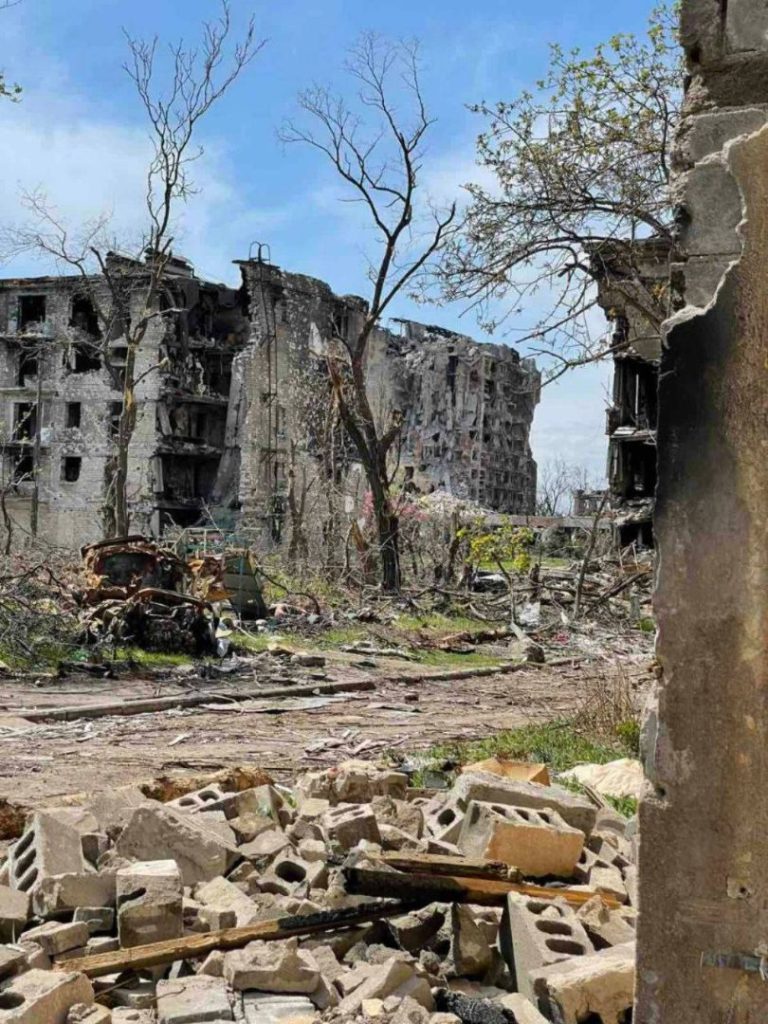
Photo: Myroslava Borysiuk’s personal archive
Myroslava had to finish school remotely; no educational documents from Mariupol were preserved.
“The lyceum building was destroyed and burned, the deputy head and the secretary died in Mariupol. I realized that I needed to go to another school, so I finished school in Kyiv externally,” says Myroslava.
Today, the student dreams of getting an education and returning home after victory to see her grandmother.
“The memories still affect me – several weeks in a bomb shelter without light, water, and food, constant bombing of the city from planes, destroyed buildings, shopping centers, university, dead people on the roads. I still often can’t fall asleep. But waking up in the morning, our defenders inspire me. I am grateful to them every day,” concludes Myroslava.
The scholarship program for obtaining the desired higher education for internally displaced youth, talented youth, children of fallen defenders and war veterans exists thanks to the benefactors of the KSE Foundation.
